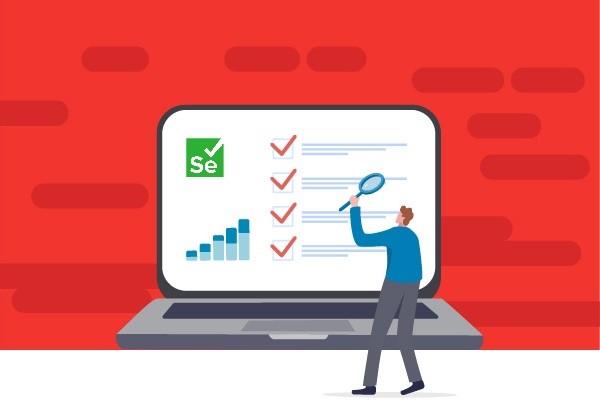Test Analyst Job Description
The field of test analysis is vital for ensuring software quality and reliability in today’s technology-driven world.
Key Takeaways:
- Test Analysts ensure software quality, improve user experience, and manage risks by rigorously testing software applications.
- The test analyst should have a blend of technical skills (test automation and debugging) and soft skills (attention to detail and communication).
- In last 3 years, the need for quality test analyst have gone up by 15% more demand and with 40% more salary than ever before.
What Is Software Testing?
Software testing involves evaluating and verifying that a software application or system meets the specified requirements and functions correctly. It encompasses various techniques, such as functional testing, performance testing, and security testing, to identify defects, ensure quality, and validate that the software is fit for use. The goal of software testing is to deliver a product that is reliable, efficient, and user-friendly.
Looking for Software testing training in online call Testleaf Now!
What Does a Test Analyst Do?
A test analyst systematically tests software applications to ensure they meet the required standards and specifications. Their responsibilities include:
- Test Planning and Preparation: Creating detailed test plans, test cases, and test scripts to cover all aspects of the software functionality.
- Test Execution: Executing test cases manually or using automated testing tools, documenting test results, and reporting defects.
- Test Automation: Developing and maintaining automated test scripts to improve testing efficiency and coverage.
- Defect Management: Identifying, documenting, and tracking software defects and working with developers to resolve issues.
- Collaboration: Working closely with developers, business analysts, and stakeholders to understand requirements and ensure comprehensive test coverage.
Test Analyst Job Description: Roles and Responsibilities

Test Analysts are tasked with ensuring that software applications function correctly and meet the specified requirements. Below is a detailed job description highlighting the roles and responsibilities of a Test Analyst position.
Job Overview
The Test Analyst is responsible for developing and executing test plans, identifying defects, and ensuring the quality of software applications. The ideal candidate will have a strong understanding of testing methodologies and experience with both manual and automated testing. This position involves working closely with development teams to understand requirements and design comprehensive test strategies.
Roles and Responsibilities
- Develop and execute test plans, test cases, and test scripts.
- Identify, document, and track software defects.
- Perform manual and automated testing of software applications.
- Collaborate with developers to resolve defects and improve software quality.
- Conduct regression testing to ensure that changes do not negatively impact existing functionality.
- Create and maintain test automation frameworks.
- Communicate test results and findings to stakeholders.
- Participate in requirement analysis and design review meetings.
- Ensure compliance with industry standards and best practices.
- Continuously improve testing processes and methodologies.
Skills and Qualifications
- Strong foundation in software testing methodologies and tools.
- Experience with test automation tools such as Selenium, RestAssured, or Playwright.
- Proficiency in programming languages like Java, C#, or JavaScript for test automation.
- Excellent analytical skills to identify defects and ensure comprehensive test coverage.
- Strong communication and presentation skills to convey test results and findings.
- A bachelor’s degree in Computer Science, Information Technology, or a related field.
- Prior experience in software testing or quality assurance.
Additional Requirements
- Experience with performance testing tools like JMeter or LoadRunner.
- Knowledge of continuous integration/continuous deployment (CI/CD) pipelines.
- Ability to work under pressure and meet tight deadlines.
- Understanding of industry standards and best practices in software testing.
20 Essential Test Analyst Skills:

Test analysts are pivotal in ensuring the quality and reliability of software applications. The test analysts need a combination of technical proficiency and soft skills to become super successful. Here’s a detailed look at the 20 essential skills for test analysts:
- Test Planning and Design: The ability to create detailed and effective test plans and test cases to cover all aspects of the software functionality.
- Manual Testing: Proficiency in executing test cases manually to identify defects in the software application.
- Test Automation: Skills in developing and maintaining automated test scripts to improve testing efficiency and coverage.
- Defect Management: Experience in identifying, documenting, and tracking software defects and working with developers to resolve issues.
- Test Execution: Ability to execute test cases and document test results accurately.
- Regression Testing: Conducting regression tests to ensure changes do not negatively impact existing functionality.
- Performance Testing: Knowledge of performance testing tools and techniques to evaluate the software’s performance under various conditions.
- Security Testing: Understanding of security testing methodologies to identify vulnerabilities in the software application.
- Database Testing: Skills in testing database functionalities, including data validation, integrity, and performance.
- API Testing: Proficiency in testing APIs to ensure they function correctly and meet performance standards.
- Load Testing: Ability to conduct load tests to evaluate how the software performs under heavy loads.
- Stress Testing: Conducting stress tests to determine the software’s stability and robustness.
- User Acceptance Testing (UAT): Coordinating and conducting UAT to ensure the software meets user requirements.
- Continuous Integration: Knowledge of CI/CD pipelines to integrate testing into the development process.
- Test Environment Management: Skills in setting up and managing test environments to ensure accurate and reliable testing.
- Version Control: Experience with version control systems like Git to manage test scripts and documentation.
- Analytical Thinking: Ability to think critically and analyse test results to identify defects and ensure comprehensive test coverage.
- Attention to Detail: A keen eye for detail to identify defects and ensure the accuracy of test results.
- Communication: Strong communication skills to convey test results and findings to stakeholders.
- Problem-Solving: The ability to identify problems, analyse potential solutions, and implement the most effective solution.
Your Skills in Resume is the best way to Sell.
The skills in a resume is important criteria to get shortlisted. Here are strategic ways to highlight your skills in a resume:
- Customize Your Skills to the Job Description: Analyse the job posting and match your skills to the requirements listed in the job description.
- Use Specific skills Section in Resume: Include a specific section titled “Skills” or “Core Competencies” near the top of your resume.
- Notify Your Achievements: Use numbers and metrics to add context to your achievements, highlighting specific projects or tasks.
- Professional Experience: Use action verbs to describe how you applied specific skills in previous roles.
- Resume Summary or Objective: Use your resume summary or objective to highlight critical skills that make you a strong candidate for the position.
- Incorporate Keywords from JD: Include keywords from the job description to ensure your resume passes applicant tracking systems (ATS).
What Tools Do Test Analysts Use?
Test analysts employ various tools to perform manual and automated testing, manage test cases, and track defects. These tools help ensure the quality and reliability of software applications. Here are some commonly used tools by test analysts:
- Selenium: A popular open-source framework for automating web applications.
- RestAssured Java framework for easier testing of REST services
- JMeter: A tool for performance testing and load testing.
- LoadRunner: A performance testing tool for examining system behaviour and performance under load.
- Playwright: An end to end automated testing library for functional testing.
- Postman: A tool for API testing and development.
- JIRA: A tool for bug tracking and project management.
- ALM (Application Lifecycle Management): A tool for managing the entire application lifecycle, including requirements, test cases, and defects.
- Git: A version control system for managing test scripts and documentation.
- Azure DevOps: A set of tools for CI/CD, including test management and automated testing.
Want to know more trending Top 10 Web Automation Tools for 2024: A Quick Guide.
Test Analyst Qualifications: What Does it Take
Becoming a test analyst requires a combination of educational background, technical skills, and soft skills. Here’s a comprehensive breakdown of what it takes to become a test analyst:
Test Analyst Educational Qualifications:
- Bachelor’s Degree: Most test analyst positions require at least a bachelor’s degree in Computer Science, Information Technology, or a related field.
- Professional Certifications: Certifications such as ISTQB (International Software Testing Qualifications Board) can enhance a test analyst’s qualifications.
Technical Skills:
- Proficiency in test automation tools like Selenium, RestAssured, or Playwright.
- Experience with performance testing tools like JMeter or LoadRunner.
- Knowledge of programming languages like Java, C#, or JavaScript.
- Familiarity with CI/CD pipelines and version control systems like Git.
- Understanding of testing methodologies and best practices.
Soft Skills:
- Analytical Thinking: Critical thinking and analytical skills to identify defects and ensure comprehensive test coverage.
- Attention to Detail: Precision in identifying defects and ensuring the accuracy of test results.
- Communication Skills: Ability to convey test results and findings to stakeholders.
- Problem-Solving: Capacity to approach complex testing challenges with innovative solutions.
- Teamwork: Ability to collaborate with developers, business analysts, and stakeholders.
Practical Experience:
- Internships: Gaining practical experience through internships in software testing can provide hands-on experience with real-world applications and tools.
- Projects: Working on personal or open-source projects can help develop and showcase your testing skills.
Industry Knowledge:
- Domain Expertise: Understanding the specific industry you wish to enter can be a significant advantage, enabling you to make more informed analyses and recommendations.
Adaptability and Teamwork:
- Adaptability: Willingness to learn new tools, technologies, and methodologies.
- Collaboration: Ability to work effectively with others, including technical and non-technical colleagues.
Types of Test Analysts
The field of test analysis is diverse, with various types of test analysts specializing in different aspects of software testing. Here are some common types of test analysts, each with unique roles and areas of expertise:
- Functional Test Analysts: Focus on verifying that the software functions as expected according to the requirements.
- Performance Test Analysts: Specialize in evaluating the performance, scalability, and reliability of software applications under load.
- Security Test Analysts: Focus on identifying and mitigating security vulnerabilities in software applications.
- Automation Test Analysts: Develop and maintain automated test scripts to improve testing efficiency and coverage.
- Mobile Test Analysts: Specialize in testing mobile applications to ensure they function correctly on various devices and platforms.
- API Test Analysts: Focus on testing APIs to ensure they function correctly and meet performance standards.
- Regression Test Analysts: Conduct regression tests to ensure that changes do not negatively impact existing functionality.
- User Acceptance Test Analysts: Coordinate and conduct UAT to ensure the software meets user requirements.
- Database Test Analysts: Specialize in testing database functionalities, including data validation, integrity, and performance.
- Compliance Test Analysts: Ensure that software applications comply with industry standards and regulations.
Test Analyst Salary: How Much Does a Test Analyst Make?
Here’s an overview of test analyst salaries across different regions, including the United States, India, Europe, and the UK.
United States:
- Entry-Level: $50,000 – $70,000 annually.
- Mid-Level: $70,000 – $90,000.
- Senior-Level: $90,000 – $120,000 or more.
India:
- Entry-Level: ₹3,00,000 – ₹7,00,000 annually.
- Mid-Level: ₹6,00,000 – ₹18,00,000.
- Senior-Level: ₹15,00,000 – ₹25,00,000 or more.
Europe:
- Entry-Level: €30,000 – €50,000.
- Mid-Level: €50,000 – €70,000.
- Senior-Level: €70,000 – €100,000 or more.
United Kingdom (UK):
- Entry-Level: £25,000 – £35,000.
- Mid-Level: £35,000 – £50,000.
- Senior-Level: £50,000 – £70,000 or more.
Top Companies Hiring Test Analysts
The need for test analysts is widespread across multiple sectors. Here are some top companies known for hiring test analysts:
- Amazon: Employs quality analysts to optimize its e-commerce platform and ensure a seamless user experience.
- Microsoft: Offers roles for test analysts in product development and quality assurance.
- JPMorgan Chase & Co.: Uses test analysts for risk management and financial software testing.
- Goldman Sachs: Hires test analysts for financial and trading software quality assurance.
- American Express: Employs test analysts to enhance customer service and fraud detection systems.
- Pfizer: Hires test analysts for healthcare software and clinical trial data analysis.
- Johnson & Johnson: Employs test analysts to ensure the quality of healthcare products and services.
- Walmart: Uses test analysts for inventory management and sales optimization software.
- McKinsey & Company: Hires test analysts to provide insights across various industries.
- Deloitte: Offers roles in software testing and quality assurance.
- Accenture: Provides testing services, employing test analysts for various client projects.
- Netflix: Uses test analysts to ensure the quality of its streaming platform.
- IBM: Offers roles for test analysts in areas such as artificial intelligence and cloud services.
- Salesforce: Hires test analysts to improve its CRM tools and services.
- OLA: Utilizes test analysts for optimizing ride-sharing services and software.
Author’s Bio:

As CEO of TestLeaf, I’m dedicated to transforming software testing by empowering individuals with real-world skills and advanced technology. With 24+ years in software engineering, I lead our mission to shape local talent into global software professionals. Join us in redefining the future of test engineering and making a lasting impact in the tech world.
Babu Manickam
CEO – Testleaf






